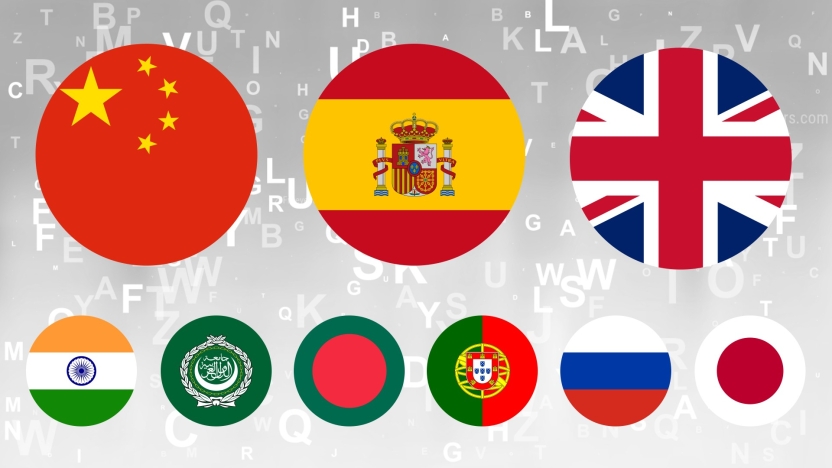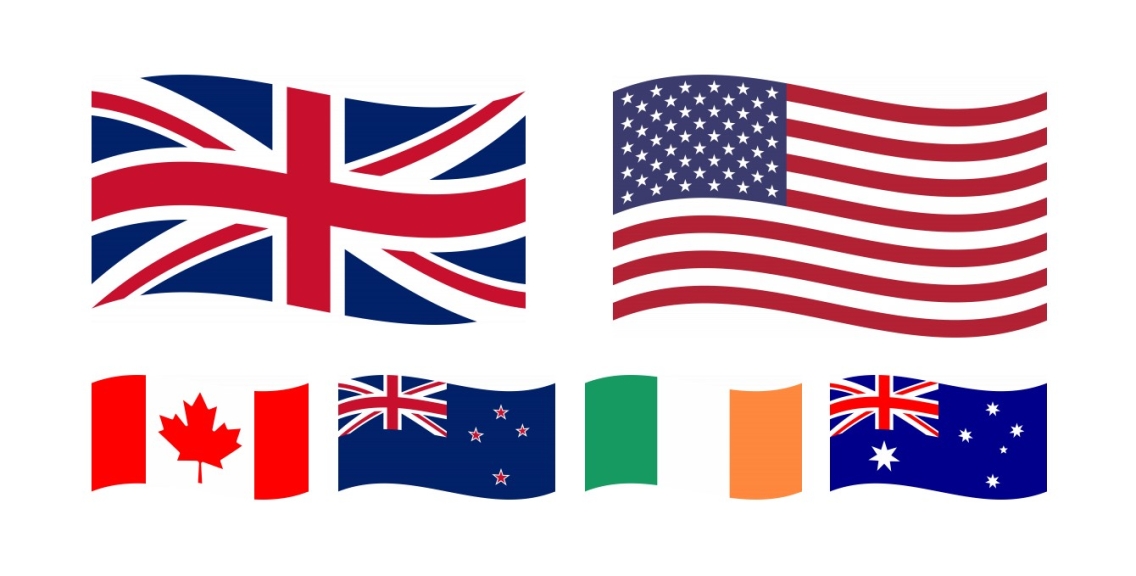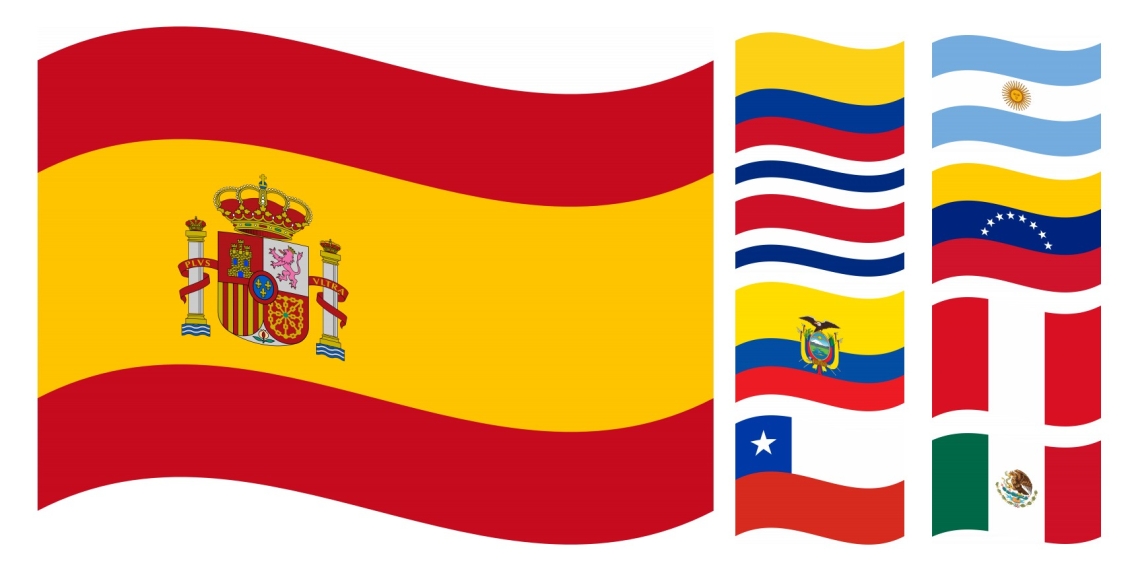What Are The Most Popular Languages In The World?

Languages are more than just a tool for communication; they are intrinsically tied to our identities, social structures, and worldviews.
The significance of language cannot be overstated. It is the linchpin of human communication, history, and culture. Understanding the most popular languages globally provides valuable insights into geopolitics, economics, and social dynamics that shape our world. This comprehensive guide delves into the various languages that hold a prominent position on the global stage, their unique characteristics, and why they are essential.
Elevate your linguistic abilities at Middlebury Language Schools in Vermont, where we offer immersive language programs tailored to all ages. Through our unique Language Pledge®, we create a 24/7 immersion environment that promises exponential growth in your language skills in just one summer. Experience language learning in a community of motivated learners and supportive faculty, and put your skills to work in various co-curricular activities. Join us to transform your language proficiency and open new doors.
The Criteria for Popularity
The term ‘popularity’ in the context of languages is multifaceted. It isn’t solely based on the number of native speakers. A language can gain prominence due to its international influence, global reach, and utility in crucial sectors like trade, science, and diplomacy. For example, Latin, while not widely spoken, still plays a significant role in legal, scientific, and religious texts.
Various metrics can be employed to measure a language’s popularity. Some of these include the number of native speakers, second-language speakers, and the extent of the language’s usage on international platforms. Organizations such as Ethnologue and the United Nations provide statistics and reports that offer a structured approach to ranking languages based on these metrics.
Number of Native Speakers
When it comes to quantifying the “popularity” of a language, the first metric that often comes to mind is the number of native speakers. A native speaker is an individual who speaks a language as their first language, often learned in childhood. Chinese leads the pack with nearly 918 million native speakers, followed by Spanish and English.
Global Influence
Another metric to consider is the language’s global influence. Some languages may have fewer native speakers but wield significant power in international relations, business, and culture. For instance, French is the official language of numerous international organizations like the United Nations and NATO.
Language Families: An Overview
- Indo-European: Includes languages like English, Spanish, and Hindi. Originating from a common ancestral language, they share many grammatical and lexical features.
- Sino-Tibetan: Primarily consists of Chinese languages and dialects, including Mandarin and Cantonese. These languages are mainly spoken in East Asia.
- Afro-Asiatic: This family includes Arabic and Hebrew. These languages are predominantly used in the Middle East and parts of Africa.
- Uralic: Includes Finnish, Estonian, and Hungarian. Despite their limited geographic spread, they hold cultural and historical significance.

The Most Popular Languages in the World
According to Ethnologue, a comprehensive database of world languages, there are several factors to consider when ranking languages by popularity. These include the number of native speakers, the language’s global influence, and its use as a second or foreign language.
- Chinese: With more than 918 million native speakers, Mandarin dominates the linguistic landscape in terms of sheer numbers. It is the official language of China and Taiwan and is widely spoken in Singapore.
- Spanish: This language has approximately 460 million native speakers. It is the official or national language in 21 countries, including Spain, Mexico, and most countries in Central and South America.
- English: Although it has around 375 million native speakers, English’s global influence makes it one of the most important languages. It is the first language of countries like the United States and the United Kingdom and is widely learned as a second language around the world.
- Hindi: Mainly spoken in India, Hindi has about 310 million native speakers. It is one of the 22 scheduled languages of India and is used in government, media, and education.
- Arabic: With around 310 million native speakers, Arabic has a wide range of dialects and is spoken in numerous countries, particularly in the Middle East and North Africa.
- Bengali: Approximately 230 million people speak Bengali as their first language. It is the official language of Bangladesh and one of the 22 scheduled languages of India.
- Portuguese: With about 221 million native speakers, Portuguese is the official language of countries like Portugal, Brazil, and Angola.
- Russian: Russian is spoken by around 258 million people worldwide. It is the official language of Russia and is one of the six official languages of the United Nations.
- Japanese: With approximately 128 million native speakers, Japanese is predominantly spoken in Japan.
- Lahnda (Western Punjabi): Around 118 million people speak Lahnda as their native language. It is mainly spoken in Pakistan.
The Dominance of English in Business, Science, and more
English occupies a unique position among the world’s languages. Although it ranks third in terms of native speakers—approximately 379 million—its global reach is unparalleled. It is the lingua franca of international business, science, aviation, computing, and diplomacy, among other fields.

The Importance of Learning English
For those who aim to make an impact on a global scale, mastering English is often considered essential. This language is not just a tool for communication but also a gateway to understanding multiple cultures and perspectives, as it has been adopted by people from diverse backgrounds around the world.
The Role of English in Business
Business transactions increasingly take place on a global stage, where English serves as the common language. Proficiency in English can open doors to career advancement, entrepreneurial opportunities, and more.
The Role of English in Education
Academic institutions globally recognize English as the standard medium of instruction and research. Scholarly articles, research papers, and high-impact journals are predominantly published in English, making them indispensable for academics and researchers.
Mandarin Chinese: The Giant of the East
Chinese boasts the highest number of native speakers, primarily concentrated in China—a global heavyweight in terms of population and economic power. Additionally, the language’s characters are used in other East Asian languages like Japanese and Korean.

Why You Should Consider Learning Mandarin
If you’re looking to immerse yourself in one of the world’s oldest and richest cultures or aim to conduct business in the rapidly growing Chinese market, learning Mandarin becomes an imperative.
Mandarin in Business
China’s influence in the global market is rising steadily, and its language reflects this trajectory. As China is a major trading partner for numerous countries, a grasp of Mandarin can be a significant asset in business.
Mandarin in Diplomacy
China’s burgeoning role in global politics necessitates an understanding of Mandarin for diplomatic dialogue. Not only can fluency in Mandarin help in diplomatic circles, but it also enables a nuanced understanding of Chinese culture and politics.
Spanish: The Language of Cultural Richness
Spanish is the second most spoken language by native speakers and has an extensive geographic distribution, predominantly in Latin America and Spain. The language also has a growing presence in the United States, making it increasingly relevant for a wide range of careers and cultural experiences.
Learning Spanish offers a gateway into a rich and diverse world of music, art, literature, and culinary traditions. Whether it’s enjoying a Gabriel García Márquez novel in its original form or savoring an authentic paella, a command of the Spanish language allows you to engage with these cultural experiences at a deeper level.

Spanish in Business
Spanish-speaking countries represent growing markets with promising opportunities for business expansion. Fluency in Spanish can provide a competitive edge in sectors like retail, healthcare, and real estate.
Spanish in Travel and Leisure
Whether you’re planning a trip to Barcelona, Buenos Aires, or any other Spanish-speaking locale, proficiency in the language will significantly enhance your travel experience. Not only can you communicate more effectively, but you’ll also gain a deeper understanding of local customs and nuances.
Other Noteworthy Languages
- Arabic: Spoken by more than 310 million people and critical for understanding the Middle East.
- Hindi: Key for anyone interested in South Asia, with over 310 million native speakers.
- Russian: Spoken across Russia and neighboring countries, important for Eurasian politics.
- French: Significant in international diplomacy, with a rich literary and philosophical tradition.
- Japanese: Key for understanding Japan, a technological and cultural leader.
Conclusion
In summary, the most popular languages in the world—be it by the number of native speakers, geographical reach, or global influence—are Chinese, English, and Spanish. While these languages dominate the global stage, the importance of other languages like Arabic, Hindi, and Russian cannot be overlooked. Each language opens a door to a unique cultural and professional landscape, enriching your worldview and skillset.
Learning a language is not just about communication; it’s a deeply transformative experience. When you learn a language, you’re not just memorizing vocabulary and syntax; you’re gaining an understanding of different cultures, histories, and ways of thinking.
Embark on a Linguistic Journey at Middlebury Language Schools
Are you passionate about languages and eager to immerse yourself in a new linguistic and cultural experience? Middlebury Language Schools offers you an unparalleled opportunity to dive deep into language learning. Whether you’re a beginner or looking to polish your proficiency, our comprehensive programs provide immersive experiences designed to accelerate your mastery of a new language.
What sets us apart is the Middlebury Language Pledge®—a commitment to speak only in your chosen language for the duration of the program. We ensure that your skills grow exponentially by fostering a 24/7 immersion environment surrounded by like-minded learners and supportive faculty. And it’s not just about the classroom; engage in co-curricular activities that put your new language into practical, enjoyable use.
Take your linguistic skills to new heights or specialize further through our Graduate Programs. Enroll today to experience the transformative power of language at Middlebury Language Schools.
Don’t let language barriers hold you back. Step into a world of linguistic possibilities and cultural enrichment at Middlebury Language Schools in Vermont.
